
Lisa Grossman is the astronomy writer for Science News. Previously she was a news editor at New Scientist, where she ran the physical sciences section of the magazine for three years. Before that, she spent three years at New Scientist as a reporter, covering space, physics and astronomy. She has a degree in astronomy from Cornell University and a graduate certificate in science writing from UC Santa Cruz. Lisa was a finalist for the AGU David Perlman Award for Excellence in Science Journalism, and received the Institute of Physics/Science and Technology Facilities Council physics writing award and the AAS Solar Physics Division Popular Writing Award. She interned at Science News in 2009-2010.

Trustworthy journalism comes at a price.
Scientists and journalists share a core belief in questioning, observing and verifying to reach the truth. Science News reports on crucial research and discovery across science disciplines. We need your financial support to make it happen – every contribution makes a difference.
All Stories by Lisa Grossman
-
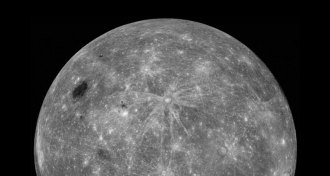 Planetary Science
Planetary ScienceChina is about to visit uncharted territory on the moon
The next two Chinese missions to the moon will visit places no spacecraft has been before. The rest of the world wants a piece of the lunar action.
-
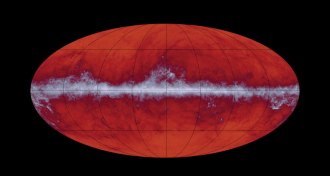 Planetary Science
Planetary ScienceHints of Oort clouds around other stars may lurk in the universe’s first light
Sifting through the universe’s early light could reveal planetary graveyards orbiting other stars.
-
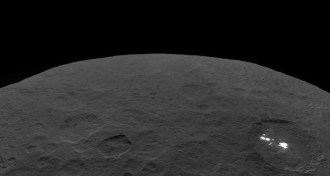 Planetary Science
Planetary ScienceDawn, the first spacecraft to orbit 2 alien worlds, has gone silent
The Dawn probe, which hopped between two objects in the asteroid belt during its seven-year mission, ran out of fuel and stopped calling home.
-
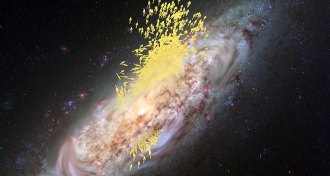 Astronomy
AstronomyThe Milky Way feasted on a smaller galaxy 10 billion years ago
The Milky Way swallowed another galaxy billions of years ago, and the leftover stars are still roaming the sky.
-
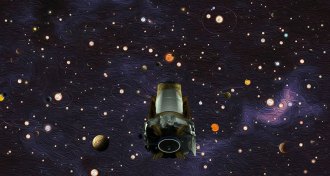 Astronomy
AstronomyThe planet-hunting Kepler space telescope is dead
The Kepler space telescope is officially out of fuel and will hunt planets no more, NASA announced.
-
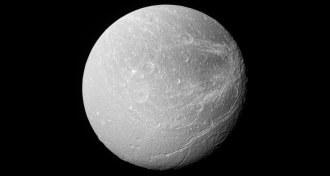 Planetary Science
Planetary ScienceSaturn’s moon Dione has stripes like no others in the solar system
Icy moon Dione has long, thin, bright lines at its equator that run surprisingly parallel to each other for tens to hundreds of kilometers.
-
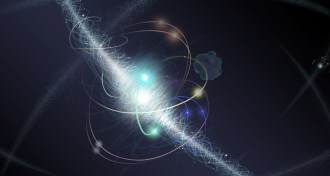 Particle Physics
Particle PhysicsWhat the electron’s near-perfect roundness means for new physics
The electron remains stubbornly round, meaning we may need to build beyond the Large Hadron Collider to find physics outside of the standard model.
-
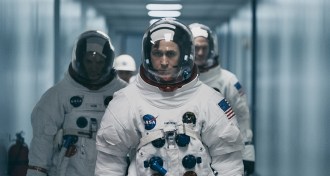 Astronomy
AstronomyThe Neil Armstrong biopic ‘First Man’ captures early spaceflight’s terror
At a time when NASA is considering how to return astronauts to the moon, ‘First Man’ is a sobering reminder of how risky the first giant leap was.
-
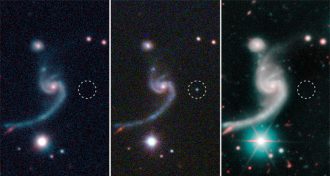 Astronomy
AstronomyThe first observed wimpy supernova may have birthed a neutron star duo
Scientists have spotted a faint, fast supernova for the first time, possibly explaining how pairs of dense stellar corpses called neutron stars form.
-
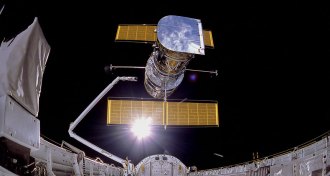 Astronomy
AstronomyIf the past is a guide, Hubble’s new trouble won’t doom the space telescope
Hubble is in safe mode, but astronomers are optimistic that the observatory will keep working.
-
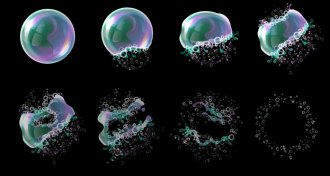 Cosmology
CosmologyThe universe’s continued existence implies extra dimensions are tiny
The strictest limits yet on the size of extra dimensions come from the fact that black holes haven't destroyed the universe.
-
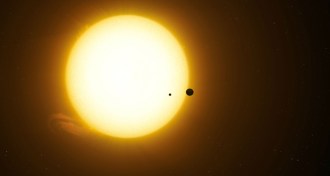 Astronomy
AstronomyHubble may have spotted the first known exomoon
A single sighting with the Hubble Space Telescope seems to confirm that there’s a Neptune-sized moon orbiting exoplanet Kepler 1625b.